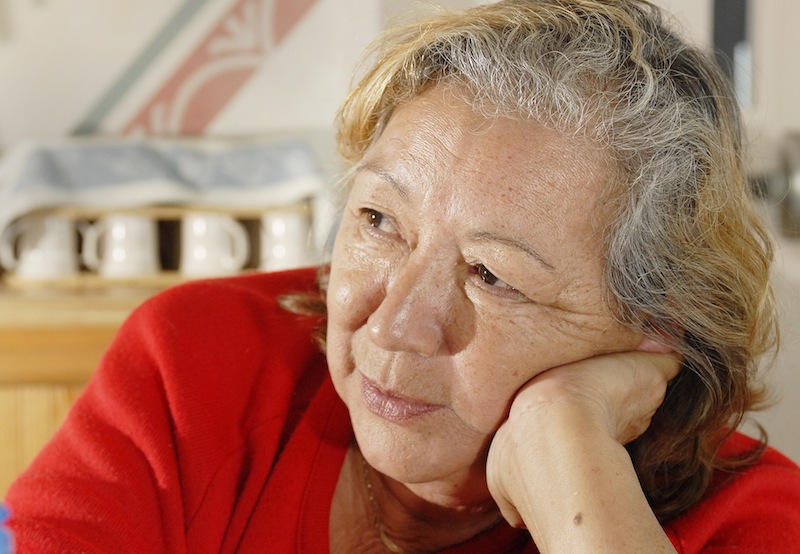AUGUSTA – A man, down on his luck, moved in with his elderly grandfather. He ran up his grandfather’s phone bill, used his car and didn’t pay for gas.
One day, the grandson simply left, taking his grandfather’s car and leaving his own cat behind. The grandfather was too kind to give the animal away.
Eventually, the grandfather faced eviction. He couldn’t pay his rent so he moved in with his son, who allegedly had verbally abused him in the past.
That story was told by Kristin Overton, director of Bridges Home Care in Augusta, in written testimony on a bill that seeks to give the elderly more protection from financial abuse – an issue that’s expected to grow as Maine’s population continues to age.
L.D. 527, sponsored by Rep. Mark Dion, D-Portland, a former Cumberland County sheriff, was passed by the House on Tuesday. It now awaits votes in the Senate.
The bill would clarify state law to say that people with dementia and other cognitive impairments cannot consent to financially abusive conduct by caregivers that would be criminal without the consent.
In a state plan released last year, the Department of Health and Human Services said one in five Mainers older than 65 have been exploited financially by family members, caregivers or scammers.
Dion, who is now a lawyer, said that as a police investigator, he often walked away unsatisfied from unprovable cases involving elders. Often, many seniors couldn’t “consent the way the general public understands consent,” he said.
At a public hearing in March, Dion’s bill was supported by the AARP and the Maine Association of Area Agencies on Aging. Dion said he worked with a number of interest groups on the bill.
The bill says that consent could not be induced by “undue influence” — defined as misuse or manipulation of a trusting relationship between a caregiver and someone older than 60.
It would increase the penalty for misuse of entrusted property to a felony when the victim is 60 or older, incapacitated or dependent, if the value is more than $1,000.
A 2009 report from the Maine Attorney General’s Office said 84 percent of elder-abuse cases go unreported, because victims either can’t report crimes, can’t keep themselves safe or are too afraid to tell someone.
“Elder victims are usually reliant on perpetrators for their care,” Jessica Maurer, executive director of the Maine Association of Area Agencies on Aging, said in written testimony in March. “To gain compliance with their demands, perpetrators often use threats of withdrawal of love, care, medications, food, social interactions, and promises of institutionalization.”
By some measures, Maine is the oldest state. Dion cited a “graying” population as a primary impetus for his bill. An analysis of U.S. Census data released by Gov. Paul LePage’s Office of Policy and Management this month says Maine has the nation’s highest percentage of baby boomers, at 29.4, and the oldest median age, 43.
A 2005 census projection of population data said the number of Maine residents 65 and older would increase by 190,615 from 2000 to 2030, rising from 14.4 percent of the state’s population to 26.5 percent, second only to Florida.
As Maine gets older, cases of dementia and Alzheimer’s disease are expected to rise. According to the DHHS’s state aging plan, released in 2012, 37,000 Mainers had been diagnosed with some form of dementia, including Alzheimer’s. That is expected to balloon to 53,000 by 2020.
The plan says “combating financial exploitation of elders must become a top priority,” citing its impact on victims and the state’s economy. In a 2011 study, MetLife, an insurance company, said elderly victims of financial abuse lose $2.9 billion annually.
Most victims in the MetLife study were 80 to 89 years old, lived on their own and needed help with health care or home maintenance. Nearly 60 percent of the abusers were men, most of them age 30 to 59.
At the public hearing in March, the American Civil Liberties Union of Maine, opposing the bill, said exploitation of the elderly is of concern in an aging state, but the bill may not help.
“We do not believe the creation of a new law or harsher punishments will deter individuals from committing acts of elder abuse,” Jill Barkley, the ACLU of Maine’s public policy advocate, said in written testimony.
Dion agreed that it wouldn’t eradicate the problem.
“But I’m hoping it’s going to give investigators and prosecutors a little bit more leverage into getting what I think is private crime that needs to be addressed,” he said.
Michael Shepherd can be reached at 370-7652 or at:
mshepherd@mainetoday.com
Twitter: @mikeshepherdme
Send questions/comments to the editors.



Comments are no longer available on this story